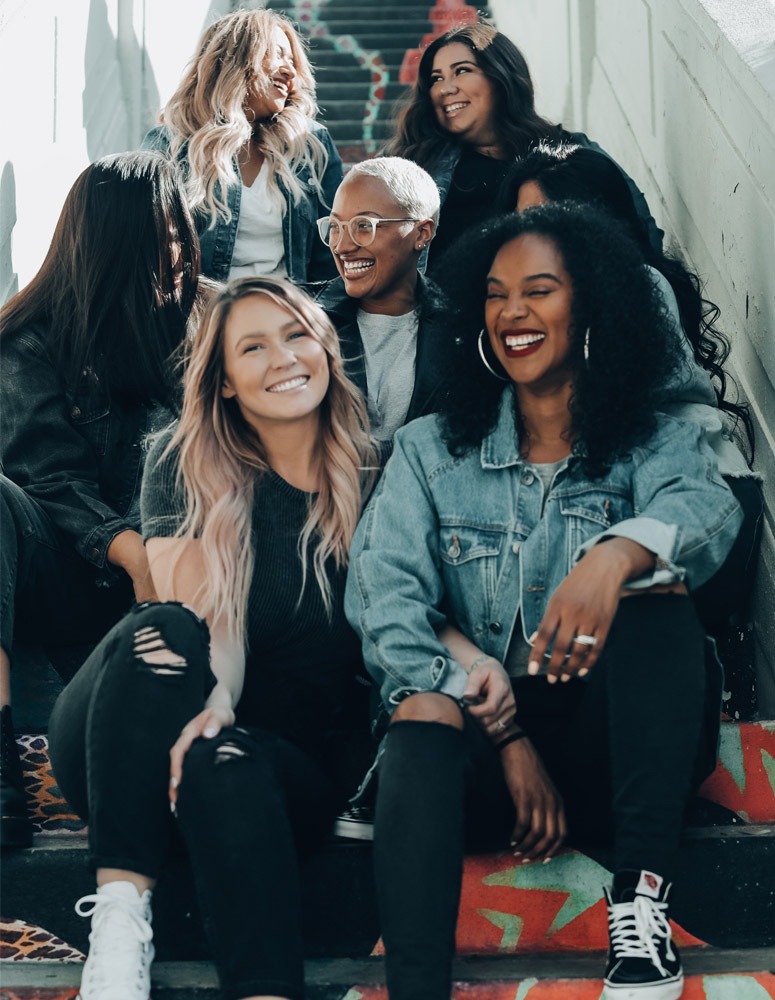Great News: A Return to Mask-Free Living
After more than a year of isolation, mask-wearing, and social distancing, the CDC has advised that fully vaccinated adults can resume mask-free living! We can gather, travel (domestically, at least), and generally resume our pre-pandemic social lives (subject to whatever more restrictive guidelines may apply locally). This is wonderful news for all of us who miss our friends and non-household family members, and for our society as a whole.
One of the things the pandemic showed us is just how much human beings thrive on social connectivity. We suffer in isolation. There’s a reason why solitary confinement is an even worse punishment than prison. Without regular interactions with people we know, trust, and enjoy, our emotions sink and our bodies follow suit. As evidence, witness the increase in anxiety, depression, substance abuse, domestic violence, and suicidal ideation—particularly in young people—that coincided with our Covid-19 lockdowns.
Even though we were able to see and talk to each other via Skype, Zoom, and other device-mediated technologies—and these communications were certainly better than nothing—they were poor substitutes for human touch and in-person interaction. After more than a year of this, we’re eager to resume the activities we love with the people we love.
To celebrate our new, vaccinated freedom, my wife and I recently invited two other vaccinated couples to our home for dinner. Prior to the pandemic, our dinner gatherings would typically last for a couple of hours at most. Guests would arrive at 6:00 p.m. and leave by 8:00 or 8:30. But on this occasion—our first get-together in over a year—our guests arrived at six, and didn’t leave until after 11:00. Nor did we want them to! The conversation was flowing, we were laughing; it was such a joy to be together!
Similarly, a colleague told me how emotional she became when she and her friends got to sing karaoke in a bar for the first time since the pandemic. “Most of the regulars were there—somewhat shy and subdued after our long absence. When it was my turn to sing, I stood at the front of the room with tears in my eyes. I never imagined I’d be so grateful to re-engage in this silly pastime that my friends and I love.”
Remembering to appreciate the joys of our favorite pursuits and the people we share them with is another lesson taught by the pandemic.
Jillian Richardson is the founder of “The Joy List,” a newsletter she started in order to build her own community as a new transplant to New York City. Prior to the pandemic, the newsletter listed events “where you can show up by yourself and leave with a new friend.” It grew out of her realization that, as a new arrival in a new city, she “had no consistent community—people who would wonder where I was if I didn’t show up.”
Of course, many of us are transplants to new cities. And, as a consequence of 24-hour delivery of goods and services to our homes, more of us were housebound even before the pandemic. We didn’t know our grocers, shopkeepers, postal carriers, or even our neighbors. As a consequence, loneliness has become a huge issue in our culture. Once thought to affect only the elderly, the average American only has one close friend, according to a study published in the American Sociological Review. One in four people have no confidantes at all!
Sadly, loneliness is nearly as acute in young people as it is in the elderly. Even before the lockdown, young people felt a lack of opportunities to form meaningful relationships and to build their own sense of community. With the lockdown, remote work, and loss of in-person sports, recreational activities, and even volunteer activities, opportunities to build community have become even scarcer. As a result, more and more people in our society feel as if they don’t matter.
This disconnectedness is a major form of Cultural Stress and, in addition to diminishing happiness, it also amplifies virtually all forms of physical disease—from migraines to heart disease, IBS to arthritis.
So, as we joyfully resume our in-person social lives (get vaccinated please), I hope you’ll remember what a gift our friends and family members are. I hope you’ll take the time and invest the energy in getting to know the people you encounter in your daily life. Consider choosing a communal activity you would enjoy doing on a weekly basis that would also expand and enrich your circle: Join a hiking group or a basketball league, take up contra dancing, enroll in a cooking class—in person, not online! And then resolve to treat these friendships as important aspects of your life. Maintaining your inner circle is an important part of maintaining your health. That’s Modern Wellness!
